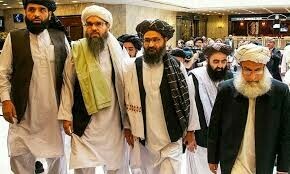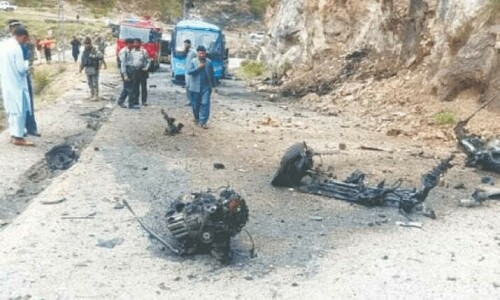WASHINGTON: A Chinese man, an Iranian and two Iranian firms were charged in the United States with conspiring to export devices to Iran that can serve to enrich uranium, an indictment unsealed on Friday said.
Sihai Cheng, 34, was arrested on Feb 7 at London's Heathrow Airport.
London's Metropolitan Police force said Cheng had already appeared at a court in the capital and was awaiting his next appearance.
US prosecutors say Shanghai-based Cheng conspired with Seyed Abolfazl Shahab Jamili of Tehran and the Iranian companies Nicaro Eng. Co. and Eyvaz Technic Manufacturing Co. to export US-made pressure transducers.
The devices, which are a type of sensor, can be used in gas centrifuges to “convert natural uranium into a form that can be used for nuclear weapons,” the indictment said.
MKS Instruments Inc. in Andover, Massachusetts produced the parts.
According to the indictment, Cheng would ship the transducers to Iran upon receiving them in China.
Publicly available photographs of Iran's Natanz enrichment facility show “numerous” MKS pressure transducers attached to Iran's gas centrifuge cascades, the indictment said.
Cheng began doing business with Jamili and Nicaro around November 2005 and had since sold the Iranian national thousands of Chinese-manufactured parts with nuclear applications, according to US prosecutors.
Jamili, in turn, informed Cheng via email that the customer for the parts was in fact Eyvaz, which was supplying the material to the Iranian government.
Cheng subsequently sent the parts directly to Eyvaz at times.
The conspiracy to obtain the MKS pressure transducers began around February 2009 following a query from Eyvaz.
Between April 2009 and January 2011, Cheng then placed orders for more than 1,000 MKS pressure transducers for a value of more than $1.8 million.
Most orders included 30 to 100 units, as Jamili warned Cheng of “critical control condition and boycott by USA government,” the indictment said.
Western powers and Israel suspect Iran is covertly pursuing a nuclear weapons capability alongside its civilian program, charges adamantly denied by Tehran.
Iran's oil-reliant economy has struggled under US-led sanctions aimed at curtailing its nuclear ambitions.
The so-called P5+1 group – Britain, China, France, Russia and the United States plus Germany – hopes to reach a final accord with Iran by July 20 to lift all sanctions in exchange for Iran scaling back its programme to the point where it would be difficult if not impossible to develop nuclear weapons.—AFP












































Dear visitor, the comments section is undergoing an overhaul and will return soon.